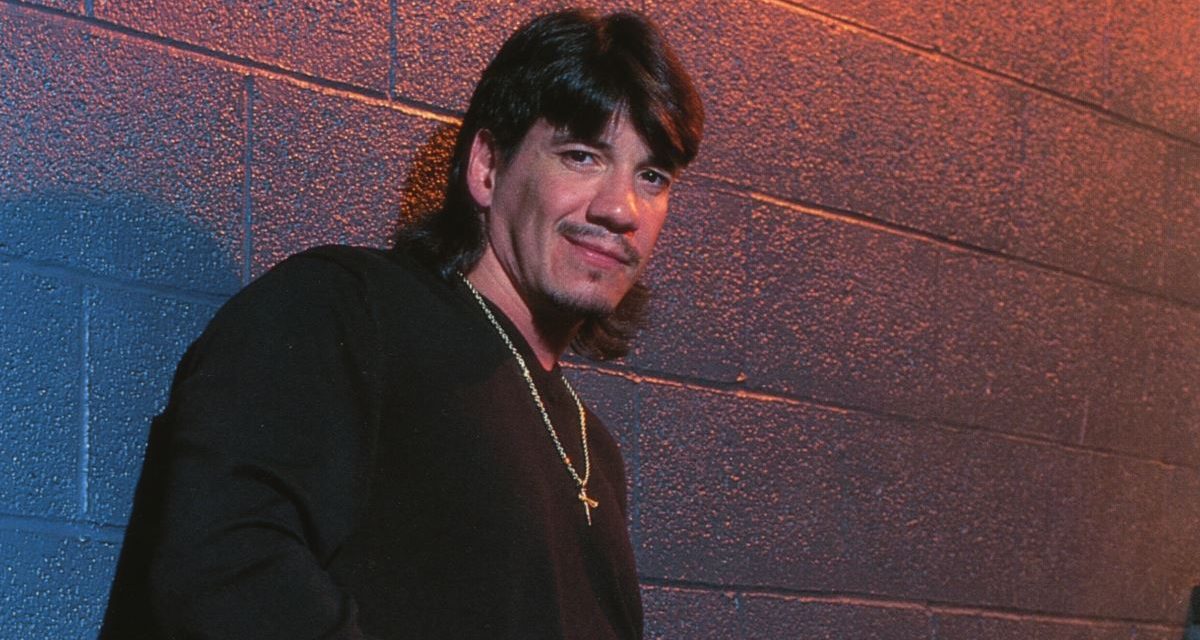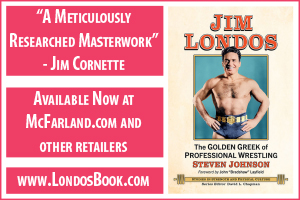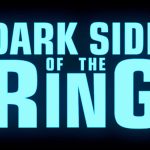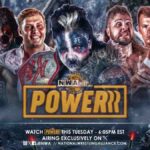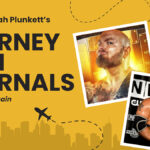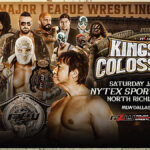Unlike many of his peers, Eddie Guerrero did not hide from his demons. They were upfront and in the public consciousness, and an often-talked about subject by his peers.
He’d been through a horrific car crash, the death of his best friend and tag team partner Art Barr in 1994, battled an addiction to pain killers and alcohol, dislocated his elbow in his second WWE match, and so much more.
The car crash was on New Year’s Eve 1998, and doctors did not expect him to live, let alone wrestle again. But there was Guerrero, back in WCW as a part of the Filthy Animals faction, in late 1999. “I’m dealing with a reconstructed ankle and three fractured vertebrae that I’ll have for the rest of my life. I have constant pain,” he told SLAM! Wrestling’s John Molinaro in 1999.
The painkiller and alcohol addiction were to follow, to combat the pain from the accident.
In her book, Lita: A Less Traveled R.O.A.D., Amy Dumas talked about being paired with Essa Rios against Guerrero and his “mamacita” Chyna during the depths of his battle with drugs:
“Unfortunately, there were moments during our angle together that he was pretty out of it. The day of Backlash, we were talking over that night’s match with our agent, Michael Hayes, and Eddie was basically unconscious. The four were sitting there in catering-Eddie was passed out and Essa barely spoke English-but Michael just went on talking about the match as if nothing was wrong. Chyna and I kept exchanging looks, like, ‘Is this really happening?’ It was a very weird scene.”
At just 5-foot-8, and 220-pounds, he had to fight to convince promoters he was big enough to compete.
Terry Funk was always a believer in Guerrero’s work, and has known the Guerrero family for decades. “I remember Eddy Guerrero running around backstage in diapers, but he grew up to be a man I have a lot of respect for, as far as his work is concerned,” wrote Funk in his autobiography.
Later, while a member of the booking committee in WCW, Funk brought Guerrero in for a tryout match during Jim Herd’s reign there. “I knew he was a hell of a worker, because I had watched his early matches, and I told Herd and the rest of them, ‘This guy’s got it. He’s really good.’ I thought the world of his work, and I was shocked that he didn’t get an offer after our match.”
In an August 2003 interview with his hometown newspaper, the El Paso Times, Guerrero said that his battle with drugs and alcohol was “the hardest thing I ever had to do in my life … but by the grace of God, I’m going on two years now, clean and sober.”
In June 2001, WWE sent Guerrero home to address his demons, and WWE VP Jim Ross explained the situation to SLAM! Wrestling. “We’re standing behind Eddie. He’s getting his cheques so his family can support themselves while he is unable to work. We are providing the care for him, so I think we’re standing solidly behind Eddie Guerrero.”
He made his return to the WWE after four months in a rehabilitation centre, which was paid for by the WWE. Just when it appeared he was ready to return, he had an alcohol-related relapse in November.
Guerrero then took to the independent circuit. To promote an appearance in Winnipeg, he talked to the Winnipeg Sun in March 2002. He addressed his termination by the WWE and his plans for the future. “I need to deal with it. I’m not ashamed of it. If anything, I’m trying to become a better person from it. … I thought my life was coming to an end. It made me stop and take a look at myself and realize I can’t do this without the power of God working in my life.”
Upon his WWE return, Guerrero ascended to the top of the card by defeating Brock Lesnar for the WWE World title in February 2004. His recovery was the subject of a UPN special (and now a DVD), entitled Cheating Death, Stealing Life: The Eddie Guerrero Story.
The documentary on the DVD is very open about Guerrero’s battles outside of the ring. He came all-too-close to self-destruction on numerous occasions, losing his job, his wife and, almost, his life.
Guerrero often cited his faith when talking about his recovery, saying that wrestling was not his number one priority.
“Everything I have or accomplished in wrestling is because of our Lord Jesus Christ,” Guerrero told SLAM! Wrestling in 1999 for a feature titled Today’s stars wrestle with their faith.
“It’s not everything to me in life, Jesus Christ is my saviour and what I live for,” he told The Sun newspaper in England in early 2005. “But he’s blessed me by putting the fire within my heart to wrestle. So every time I get that opportunity, I give my body and life. When I’m wrestling I personally carry the responsibility and challenge in my heart to live or die in the ring. And If I were to die in the wrestling ring – I’d die a happy man.”
There was talk of an Eddie Guerrero autobiography following the success of the TV special/DVD.
RELATED LINKS
